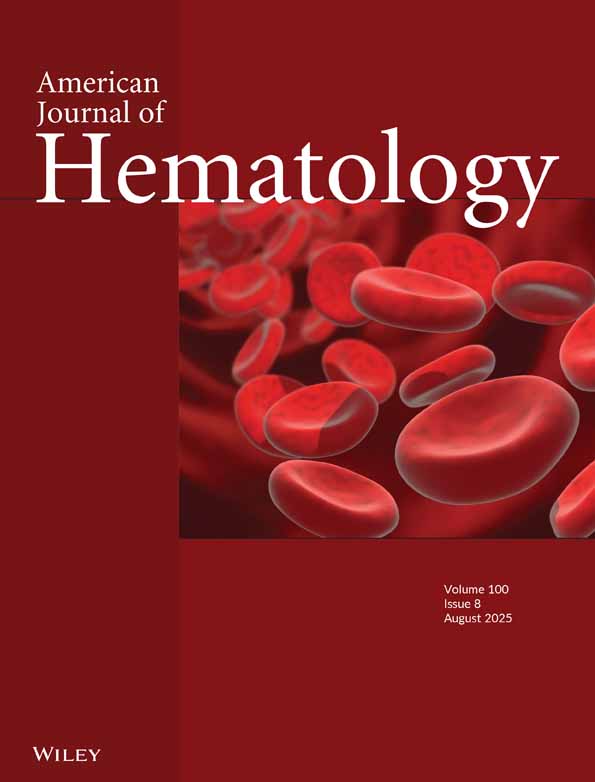Systemic AL amyloidosis with acquired factor X deficiency: A study of perioperative bleeding risk and treatment outcomes in 60 patients†
Conflict of interest: Nothing to report.
Abstract
Systemic light-chain (AL) amyloidosis may be associated with acquired factor X (FX) deficiency and optimal management of this coagulopathy is unknown. We reviewed our experience with 60 patients with isolated FX deficiency (≤50%) due to AL amyloidosis that underwent an invasive procedure between 1975 and 2007. They were classified as having severe (<10%; n = 6), moderate (10–25%; n = 15), or mild (26–50%; n = 39) FX deficiency. The patients underwent a total of 112 procedures, 19 (17%) of which were managed with periprocedural treatment with one or more hemostatic agents. There were complications in 14 (13%) procedures (bleeding = 12, thrombosis = 1, death = 1). Baseline FX level was not predictive of bleeding risk; the only association with postintervention bleeding was central venous catheter placement. However, bleeding complications were relatively infrequent, particularly in patients with mild or moderate FX deficiency undergoing nonvascular procedures. Activated recombinant factor VII might be considered in patients undergoing major surgical procedures, but further experience is needed. Optimal management of AL patients with FX deficiency undergoing invasive procedures remains to be determined. Am. J. Hematol., 2010. © 2009 Wiley-Liss, Inc.




